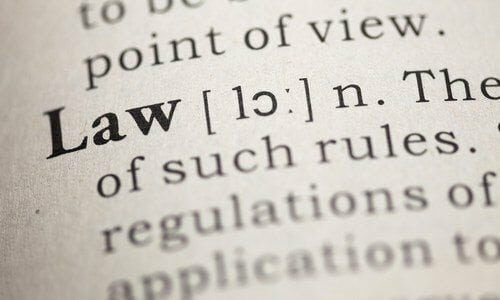Common Drunk Driving Questions
Difference between an OWI and a DUI
In Wisconsin, drunk driving charges are commonly referred to as OWI (Operating While Intoxicated), synonymous with DUI (Driving Under the Influence) used in other states. DWI (Driving While Intoxicated) is another term you might encounter, but essentially, they all denote the same offense. At DK Anderson, S.C., we often use OWI and DUI interchangeably to describe drunk driving charges, aiming to clarify any confusion surrounding these terms.
The OWI Legal Process in Wisconsin
The process for defending an OWI charge can vary based on several factors, including the specific offense number (1st, 2nd, or subsequent) and the court system handling your case (municipal vs. circuit court). Our goal at DK Anderson, S.C. is to demystify the process, ensuring you know what’s expected of you as a defendant, thereby reducing stress and preparing you for the journey ahead.
Initial Steps by Your DUI Attorney
One of the first actions we take on your behalf is requesting an administrative review hearing, especially if your case involves a prohibited alcohol concentration or a controlled substance detected in your blood. Winning this hearing could mean retaining your driving privileges until your case concludes, offering a strategic advantage in your defense
If you are alleged to have violated Wisconsin’s Implied Consent Law by refusing to provide a sample of your breath or blood, we will promptly request a refusal hearing. It is important to note that you only have ten business days to get this request into the court.
Your First Court Appearance
At your initial court appearance, we’ll enter a not guilty plea and start the discovery process, which includes filing requests for any available evidence, such as arrest videos. This phase is crucial for uncovering potential defenses and deciding whether to prepare for trial or negotiate a plea.
Potential Outcomes of Your DUI Case
The outcomes of an OWI case can range significantly, influenced by the OWI sentencing guidelines and the specific facts of your case. While some might anticipate a binary outcome—dismissal or conviction—there are often opportunities for plea bargains or charge amendments that avoid an OWI conviction. We’re committed to being upfront about the possible outcomes, ensuring you have realistic expectations.
Will Your Case Go to Trial?
While most OWI cases are resolved before reaching trial, we’re fully prepared to take your case to court if necessary. The decision to proceed to trial depends on the strength of the evidence, potential motion hearing outcomes, and the negotiation process with the prosecution. Rest assured, our dedication to your defense is unwavering, and we’ll exhaust every option to secure the best possible result.
At DK Anderson, S.C., our commitment is to provide aggressive, informed legal representation for your OWI case. Contact us today for a free consultation and learn how our expertise can help navigate the complexities of your OWI charges.
Our Practice Areas
Drunk Driving
Whether you are charged with a first offense, or a fifth offense, our Wisconsin OWI attorneys can help.
Violent Crimes
A conviction for any one of Wisconsin's violent crimes will have significant consequences.
Drug Charges
Our Wisconsin Drug charge attorneys know the law and how to apply that law in the court room.
Domestic Violence
A conviction for a domestic violence charge in Wisconsin has additional consequences.
Property Crimes
Wisconsin property crimes include theft, forgery, and criminal damage to property.
Sex Offenses
Not much will change your life like a conviction for one of Wisconsin's sex offense charges.
Traffic Citations
Although less serious than a criminal charge, a traffic citation can effect your driver's license.

